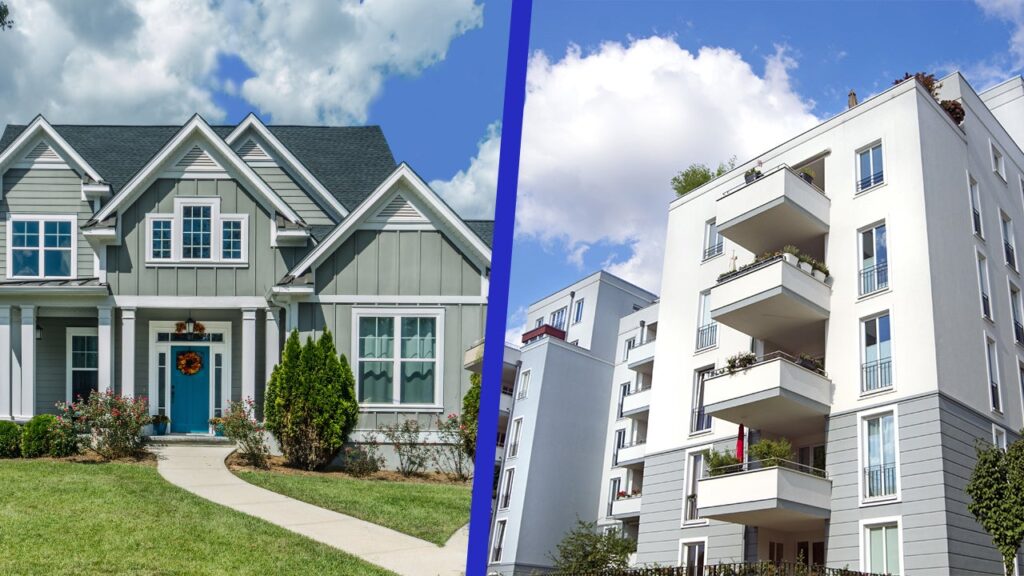Category: Real Estate
8 Financial Planning Tips For Condo Owners: How to Budget and Save Wisely
Owning a condo can be expensive, from the initial purchase to ongoing maintenance costs. For this reason, condo owners need to plan their finances carefully and budget wisely. To help you, we’ve put together 8 financial planning tips for condo owners that will help you save money while enjoying your home. Additionally, staying informed about cost-effective maintenance practices can make a significant difference in the long run. For more insights and resources on managing condo expenses, you can also explore helpful information at https://lentoriacondo.com.sg, which offers valuable tips tailored to condo owners looking to optimize their financial strategies.
1. Set Your Priorities
When it comes to managing your finances as a condo owner, the first step is to set your priorities. This means knowing what obligations and expenses are essential and must be taken care of first. Essential expenses such as mortgage payments should come before non-essential purchases like new furniture or electronics. Knowing which items are most important allows you to stay organized and on top of your financial responsibilities without overspending or getting behind on bills.

2. Create a Budget
Once you have identified what expenses are necessary, create a budget that outlines all of your income sources and planned expenditures each month to keep track of where your money is going and when bills need to be paid. Be sure to include both fixed costs (mortgage payments) and variable costs (utilities) in order to get an accurate picture of how much money is coming in versus going out every month.
3. Consider Savings Options
Making regular contributions into savings accounts can help build up an emergency fund or long-term investments that may come in handy if unexpected expenses arise or if there is ever a need for extra cash flow during retirement years. Many banks offer various savings accounts with different interest rates tailored specifically towards condo owners, so do some research online or speak with local banks about their options before deciding which one works best for you financially.
4. Take Advantage of Tax Benefits
As a condominium owner, there are certain tax benefits that could potentially help reduce some of the monthly costs associated with owning a property, such as mortgage interest deductions or property tax exemptions, depending on where you live. Before you file your taxes each year, check with your local government or consult an accountant about potential tax breaks that could save you thousands in taxes each year – just make sure all the paperwork is gathered in advance to maximize these benefits wherever possible!
5. Get home insurance & maintenance plans
Home insurance is not only important to protect your investment, but is also required by many lenders when purchasing apartments/homes, especially those close to water as they are at higher risk of flooding than other properties further inland. Research different policies available from different providers to compare prices/coverage levels before making any decisions – this could potentially save you hundreds each year by choosing cover that meets your needs without breaking the bank! Additionally, consider investing in maintenance plans offered by companies specializing in condominium maintenance services; these plans cover repairs related to HVAC systems, plumbing issues etc., thus helping to prevent costly emergencies down the line due to proactive preventative measures taken now instead of later!
6. Shop around & compare prices
Before making any major purchases related to condos, such as appliances, furniture etc., take time to shop around, and compare prices at several stores to find the best deals available in town – doing so could result in substantial savings over the course of a few months if shopping habits remain consistent across the board! It’s also a good idea to equip places with energy-efficient products to reduce utility bills throughout the duration of ownership; LED light bulbs, for example, often last longer, and use less electricity than traditional incandescent counterparts, thus saving more money in the long run, given the fact they require replacement less frequently than latter type bulbs well.
7. Manage common area fees and charges carefully.
Condo complexes usually have monthly common area charges (elevator fees, garbage collection, etc.) associated with them, which must be taken into consideration while budgeting accordingly to manage funds effectively; additionally, being aware of all other fees, restrictions governing particular complexes, including pet rules, parking regulations, etc., will allow residents to anticipate future expenses and avoid surprises down the line! Keeping abreast of recent changes to current laws governing development may also prove helpful in the event that a situation arises requiring legal assistance in dealing with disputes between community members, and landlords alike, due to improper use of common facilities within the vicinity of the premises.

8. Monitor spending habits regularly
Finally, monitoring spending habits regularly will ensure you stay on top of your finances, avoiding unnecessary debts, last-minute bills, and late payment penalties, which eventually damage credit scores, affect your ability to obtain loans, purchase vehicles, homes, and further along your life’s journey! Keeping records of transactions both online and offline forms a great way to stay organised Even the simplest tasks like recording mileage travelled work commute tracking grocery store trips become easier possibly cheaper overtime depending type of lifestyle lead by the individual level basis.
Beat the Crowd When Investing in Real Estate
Crowd investing is a popular choice for real estate investors because it allows individuals to invest in a property without having to front the full cost. Crowd investing platforms connect interested investors with properties that they can purchase together. This allows individual investors to share the risk and reap the rewards of increased demand for a particular property.
The popularity of crowd investing has led to a surge in real estate prices around the world. In some cases, this has resulted in over-valuation of properties, but it has also allowed more people to invest in real estate than ever before. Crowd investing provides an affordable way for individuals to get into the real estate market and make money while the market is still growing.
The Pros of Crowd Investing:
Crowd investing is a relatively new phenomenon in the world of real estate. It refers to the act of raising money by selling securities to a large number of people, often through the internet or other electronic means. The pros of crowd investing are manifold.

First and foremost, it is an efficient way to raise money. Crowd investors are able to get in and out of investments quickly, making it ideal for those looking for short-term returns. This flexibility also makes it well-suited for high-growth opportunities.
Second, crowd investing allows investors to diversify their portfolios in a cost-effective manner. By buying securities from multiple companies or projects, investors can reduce the overall risk they take on when investing in real estate.
Third, crowd investing offers potential investors access to quality investments that may not be available through traditional channels.
The Cons of Crowd Investing:
Crowd investing is all the rage these days. But before you rush into it, be aware of the cons associated with this type of investment. First and foremost, crowd investing is highly risky. You could lose your entire investment if the project fails. Second, there’s no guarantee that the project will generate a return on your investment. Third, you may not have access to information about the project that other investors do. Finally, crowd investing can be difficult to track and monitor. If you’re considering crowd investing as an option for your real estate investments, be sure to do your homework first!

How to Beat the Crowd When Investing in Real Estate:
If you’re looking to invest in real estate, there are a few things you should keep in mind. First and foremost, research the area you’re interested in. Second, don’t be afraid to wait for the right property. And finally, remember to stay organized and take the time to understand the market—no matter how crowded it seems.
When it comes to location, no one beats Newport Plaza Singapore. This mixed-use development offers luxurious apartments as well as retail spaces and amenities such as a gym and pool. The property also has an amazing view of Marina Bay Sands and Singapore’s iconic skyline.
Of course, not everyone can afford Newport Plaza Singapore—nor should they try. But there are plenty of other great locations available for those who are willing to do their homework and wait for the right opportunity.
Buying a Condo Versus Buying a Home
When it comes to buying a home, one of the main decisions you’ll need to make is whether to buy a condo or a single-family home. Both options have their own unique benefits and drawbacks, and the right choice for you will depend on your needs, budget, and lifestyle. Here’s a closer look at the thiam siew new launch the continuum:
Pros of buying a condo:
- Lower cost: One of the main advantages of buying a condo is that they tend to be more affordable than single-family homes. This can make them a good option for first-time buyers or those on a tight budget.
- Lower maintenance: Condos often have lower maintenance costs than single-family homes, as the association fees typically cover things like landscaping, exterior maintenance, and common area upkeep. This can be a big advantage for those who don’t have the time or inclination to do these tasks themselves.
- Amenities: Many condos come with a variety of amenities such as pools, fitness centers, and common areas, which can be a great feature for those who enjoy an active lifestyle.
- Security: Condos often have added security measures such as gated entrances and on-site security staff, which can be a plus for those who value peace of mind.

Cons of buying a condo:
- Limited privacy: One of the main drawbacks of buying a condo is that you’ll have less privacy than you would in a single-family home. You’ll be living in close proximity to your neighbors, and you may have shared walls, floors, or ceilings.
- Association fees: Another potential drawback of buying a condo is that you’ll be required to pay association fees, which can add to your monthly expenses. These fees can vary significantly, so it’s important to understand what they cover and whether they represent a good value.
- Restrictions: Condos often have more restrictions than single-family homes, including rules and regulations governing things like pets, rentals, and modifications to the unit. These restrictions can impact your ability to enjoy the property and may affect its resale value.
- Financing: It can be more difficult to get approved for a mortgage to buy a condo than it is to buy a single-family home. This is because lenders tend to view condos as a higher risk due to the shared ownership structure and the potential for association financial issues.

Pros of buying a home:
- Privacy: One of the main advantages of buying a single-family home is that you’ll have more privacy than you would in a condo. You won’t have shared walls, floors, or ceilings, and you’ll have your own yard and outdoor space.
- Control: When you own a single-family home, you have more control over your living space and can make modifications and improvements as you see fit.
- Potential for appreciation: Single-family homes tend to appreciate in value more than condos, which can make them a good investment over the long term.
Cons of buying a home:
- Higher cost: One of the main drawbacks of buying a single-family home is that they tend to be more expensive than condos. This can make them less affordable for some buyers, especially in markets with high demand and rising prices.
- Higher maintenance: Single-family homes also tend to have higher maintenance costs than condos, as you’ll be responsible for all aspects of the property’s upkeep, including the landscaping, exterior maintenance, and repairs
